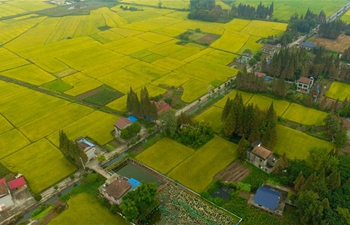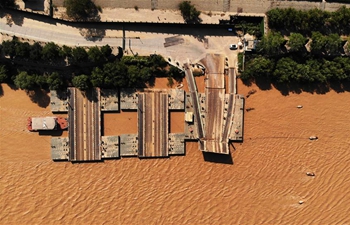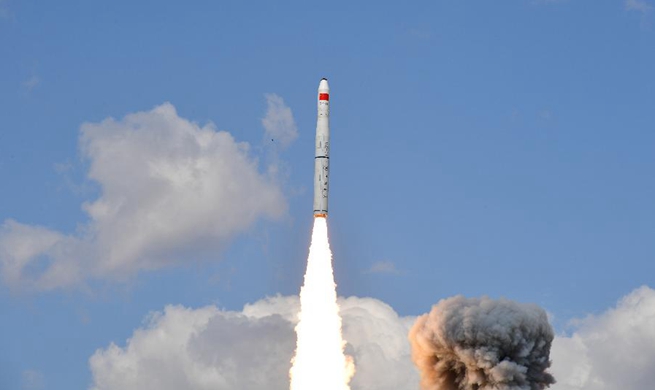KUALA LUMPUR, Sept. 19 (Xinhua) -- Malaysian authorities conducted a third round of cloud seeding on Thursday in an attempt to provide temporary relief to the public as the persistent haze has resulted in poor air quality.
Minister of Energy, Technology, Science, Climate Change and Environment Yeo Bee Yin said cloud seeding was only possible in the right conditions and stressed the government was trying its best to provide relief to the public.
"What we can guarantee is that the government is ready to do cloud seeding whenever it is possible. Whenever the cloud situation allows we will do cloud seeding to bring temporary relief to people who are suffering under this haze situation," she told reporters at an airport after a cloud seeding operation was conducted.
"So we are very concerned on people's health. We are very concerned on everyone that needs to go through their life in hazy situation. We want to bring, even temporary relief, we are going to do our best to make sure that we do this to the people," she said.
The Malaysian Education Ministry had ordered 2,459 schools, serving over 1.7 million students in six states and two Federal Territories including the capital of Kuala Lumpur, to be closed on Thursday and Friday.
Meanwhile all flights from the Sultan Azlan Shah Airport in Perak state, along Peninsular Malaysia's west coast, were cancelled following poor visibility due to the ongoing haze, reported state news agency Bernama.
The airport is a major transportation hub for domestic flights and serves international flights to Indonesia and Singapore as well.
As of 9 p.m. local time, 26 areas recorded "unhealthy" air quality and five areas recorded "very unhealthy" air quality out of the 68 Air Pollution Index (API) monitoring stations across the country.
According to the country's air quality rating, an Air Pollution Index (API) reading of zero to 50 is "good," 51 to 100 "moderate," 101 to 200 "unhealthy," 201 to 300 "very unhealthy," and 301 and above is "hazardous."
Malaysia's Ministry of Energy, Technology, Science, Climate Change and Environment said the haze was triggered by the forest fires in neighboring Indonesia.













